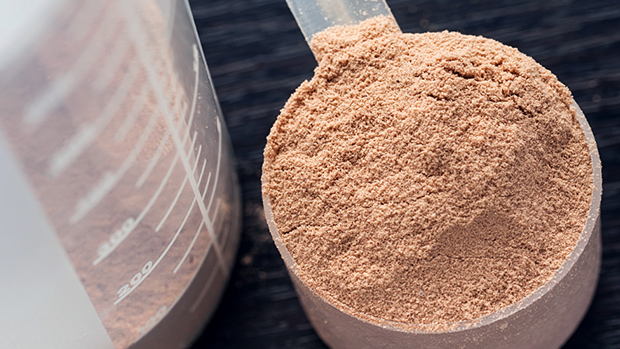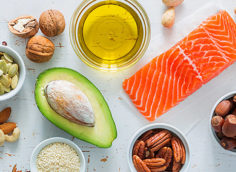Protein and Peckerheads
If you lift weights, you've no doubt spent far too much time fending off the well-meaning advice of friends, family members, and peckerhead bloggers who wag their fingers at you while telling you that you're ruining your health by eating too much protein.
These same people, if they're feeling particularly priggish, might also tell you that weight lifting isn't the greatest of exercises and that maybe you should ride a stationary bike in a roomful of like-minded idiots while some aspiring cult leader urges you to test the limits of your ventricle walls.
In the past, you had two choices as to how to respond. You could either ignore them, or give them the ol' Italian fongool with the requisite forearm gesture. Now you've got a third option. You can show them the results of a study that showed that weight lifting in combination with a high-protein diet dramatically improves health.
Korean researchers recruited 18 twenty-something men who'd never lifted weights. They split them into two equal groups. Each group undertook a 12-week lifting program where they used weights that were approximately 60 to 80 percent of their 1RM.
One group ate a standard diet of 60% carbs, 15% protein, and 25% fat. The second group ate a protein-rich diet comprised of 55% carbs, 30% protein, and 15% fat. Both groups, however, took in the same amount of calories.
After 12 weeks, the high protein lifters had the following results:
- Gains in lean body mass
- Dramatically increased levels of growth hormone
- Increases in serum levels of testosterone
- Reduced body fat percentages
The standard diet group, however, experienced no significant changes in the above parameters. You probably could have guessed all that, but the high protein group also experienced improvements in a couple of health parameters that the standard diet group didn't experience:
- Greatly increased insulin sensitivity
- Improved cholesterol ratios (higher HDL levels)
The researchers concluded "...these findings suggest that there are hormonal interactions to ameliorate body composition, metabolic profiles, and energy metabolism after a long term higher protein diet and resistance exercise."
All of this means that your current dietary practices and exercise choices are correct. Carry on protein brothers and sisters, carry on.
- Kim HH1, et al. "Interactive effects of an isocaloric high-protein diet and resistance exercise on body composition, ghrelin, and metabolic and hormonal parameters in untrained young men: A randomized clinical trial." J Diabetes Investig. 2014 Mar 23;5(2):242-7.





